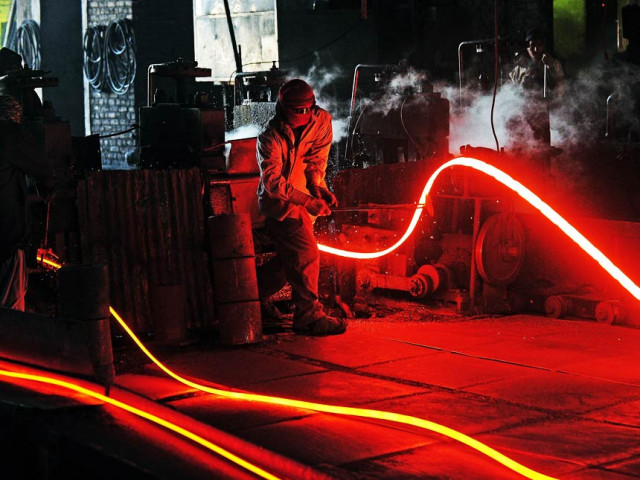Rehabilitation work: PSM strives to swiftly repair damaged furnace
Launches investigation into cause of the incident.

Rehabilitation work: PSM strives to swiftly repair damaged furnace
The management has constituted a fact-finding committee to determine the root cause of the problem and trace the people responsible. The committee will also suggest measures that could be undertaken to avoid the repeat of such incidents in future, says a press release.

On October 9, the blast furnace had developed severe problems that badly affected its output.
“PSM’s senior management and executive management committee are monitoring the restoration work round the clock to restart the furnace as soon as possible,” the release said.
The management is also working in close cooperation with the government to arrange required funds to carry out capital repair of some of the major units of the mill including blast furnace-I and steel convertors.
Documentation and other work was being completed on a fast track so that after getting clearance from the government the capital repairs could be undertaken for achieving sustainable and reliable production from the units, the release added.
Explaining its position, the PSM management said the operation of the blast furnace was complex in nature that relied on multiple technological aspects. To keep its operation in the safe zone, it should be operated non-stop at its rated capacity.
According to expert opinion, normal refractory life of the blast furnace is 18 to 20 years and the blast furnace-I has already matured as far as its relining is concerned. As the furnace was operated at a very low capacity during the last three to four years, it has scratched its inner profile.
Under these conditions, there are certainly some weak areas, especially in the hearth of the furnace that encounters very high temperature, ie, 1,500 to 1,600°C and highly corrosive slag which may blow up during the operation in specific circumstances.
Published in The Express Tribune, October 18th, 2014.
Like Business on Facebook, follow @TribuneBiz on Twitter to stay informed and join in the conversation.


















COMMENTS
Comments are moderated and generally will be posted if they are on-topic and not abusive.
For more information, please see our Comments FAQ